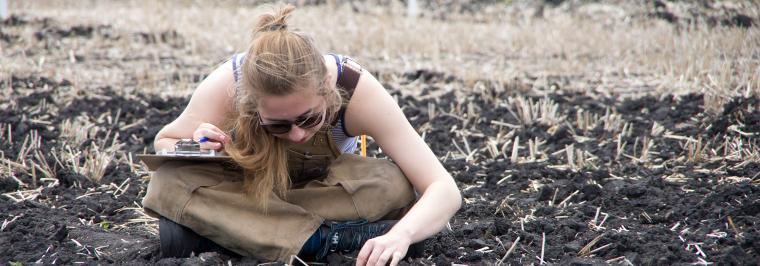
The study of Environmental Sciences investigates the complexity of the natural world: how it works, and the impact of human activity. Give your career a kick-start by participating in UBC Science Co-op. Through your Co-op work terms, you’ll develop an understanding of major environmental issues facing the planet: climate change, loss of biodiversity, air/water pollution, food security, energy production. Gain some cutting edge skills and experience as you build your resume. Opportunities can vary from field based research, aquatics, labs, policy development and implementation, use of technology such as GIS, analytical modelling tools, mapping, and remote sensing. Work locally, elsewhere in Canada or internationally.
Application Deadlines
| Apply in Year (At Time of Application Deadline) | Application Deadline Date |
|---|---|
| 2 & 3 | Tuesday, September 15, 2026 |
Application requirements
- Have a minimum cumulative average of B- (68%)
- Be enrolled at UBC (Vancouver) as a full-time student in good academic standing in mathematics, English and the Sciences
- Having a full-class driver’s license will increase chances of placement by a significant margin as quite a large portion of postings for Environmental Science Co-op require students to have a Class 5 driver’s license
- Demonstrate good communication skills, and possess a responsible, and mature attitude
- Demonstrate leadership, teamwork and time management
- Demonstrate interest in your chosen field
- Be flexible and willing to accept a work placement outside the Lower Mainland
NOTE: Being eligible does not automatically guarantee your acceptance into the Co-op Program.
Work terms schedules
Schedule A
| Year | Fall | Winter | Summer |
|---|---|---|---|
| 1 | Study Term | Study Term | - |
| 2 | Study Term | Study Term | - |
| 3 | Study Term | Study Term | Work Term |
| 4 | Work Term | Work Term | Work Term |
| 5 | Study Term | Study Term | - |
Schedule B
| Year | Fall | Winter | Summer |
|---|---|---|---|
| 1 | Study Term | Study Term | - |
| 2 | Study Term | Study Term | Work Term |
| 3 | Study Term | Study Term | Work Term |
| 4 | Work Term | Study Term | Work Term |
| 5 | Study Term | Study Term | - |
Please note: These are the typical schedules for Environmental Sciences students.
The above schedules are highly recommended by the Co-op Program in order for students to complete their program within the shortest time frame. Alternate scheduling is available in consultation with your Co-op Coordinator.
Sample Jobs and Companies
Parks Canada – Prince Albert National Park
Student Resource Conservation Field Technician Students will assist ecologists and resource conservation technicians with park research, inventories, wildlife/vegetation monitoring and collection of data. Wildlife work will include monitoring songbirds using digital sound recording equipment, monitoring colonial birds, collecting water samples and flow rate information and other fieldwork as required. Vegetation studies will involve monitoring and removal of exotic species of plants, monitoring for the protection of fescue grasslands, and helping with the restoration of disturbed areas.
Success Stories
Katie Allen
Environmental Sciences
4 months @Stantec; 8 months @Environment and Climate Change Canada; 4 months @BC Wildlife Federation UBC Science Co-op provided Katie with a wealth of diverse work experiences not available in the classroom. Katie’s Co-op experience has included hands-on field work which focused on marine aquatic ecosystems; working in a microbiology research lab focusing on marine water quality monitoring; and science education/outreach. Katie’s Co-op experience has been instrumental in the next step in her career path: studying law at the University of Victoria with a focus on environmental law.